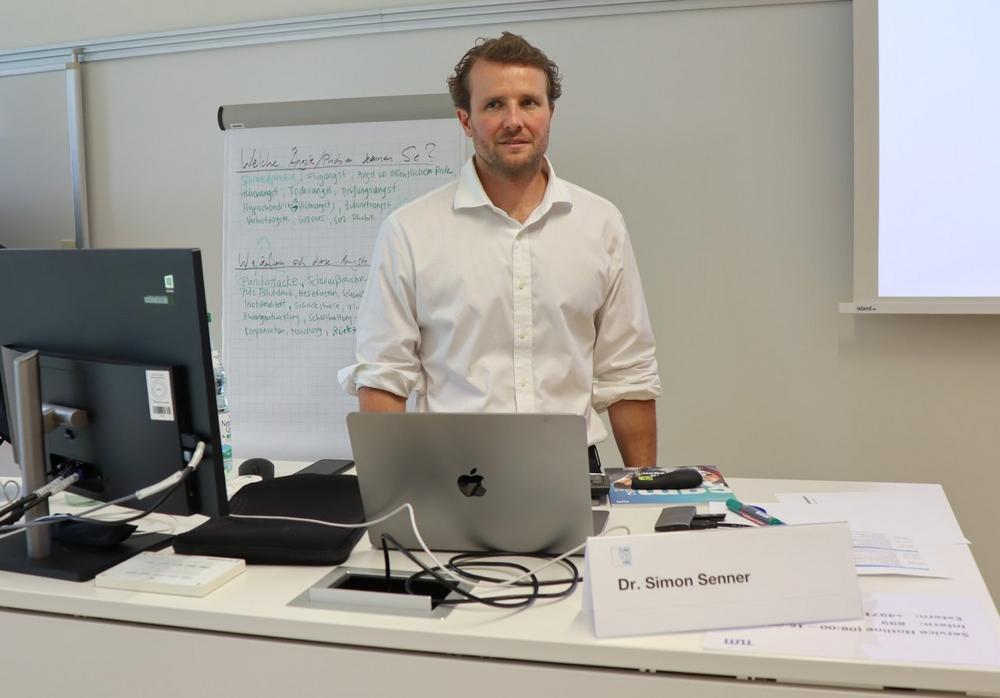As part of the "Mental Health at Work" seminar at the TUM Campus Heilbronn, the expert sheds light on the topic from its origins to its consequences and provides recommendations for action. The first hurdle with mental illness is recognizing the illness. "If an employee comes to work with a broken arm, it’s obvious. With mental health problems, it’s more of a gut feeling and managers often find it difficult to broach the subject," explains Senner. The reaction to uncertainty is often to do nothing and "that is certainly the wrong strategy".
Alarming development
Figures that illustrate the explosive nature of the topic: One in three people will suffer from a mental illness in the course of their lives, but only 25 per cent seek professional treatment. In the last ten years, mental illnesses such as anxiety, depression and burnout have increased by 90 percent. The average number of days of absence due to mental stress was 36.6 in 2021.
There are also psychosomatic illnesses: "In a major study, the Robert Koch Institute found that in no more than 30 percent of all people with back pain, the problem is actually in the back," explains the head physician for psychiatry and psychotherapy in Reichenau and continues: "The idea that the mind and body are separate from each other is completely outdated. The transitions are fluid, and that’s how you have to think."
Burdens on all sides
The mental suffering on the part of the affected employees also means high costs for companies and society. While investments have been made in occupational health and safety in the physical area in recent years, for example through steel caps and the filtering of toxic vapors, Dr Senner still sees a lot of room for improvement in the area of mental illness: "When I look at the effort companies make in other areas to achieve half a percent more margin and compare that with the prevention of mental stress, there is enormous potential here."
The world of work has become faster, denser and digital. Managers should also adapt to these changes: "It’s about making this very vague topic, which has many shades of grey, tangible," explains Senner. Countermeasures can be taken at an early stage: "Communicating experiences, developing strategies and learning from the best practices of other companies helps to take preventative action and get ahead of the wave of mental illness." It is about concrete changes. Raising awareness alone is not enough. Senner appeals: "We have to take action!”
The right tools
Training courses offer opportunities to do this. "Managers can learn the right tools and the right dialogue techniques at TUM Campus Heilbronn," says Senner. In the "Mental health at work" seminar, participants spend two days learning how to recognize mental illness, approach those affected with empathy and help them. Because: "I have to talk about it, exchange ideas, only then can I develop further. TUM is at the forefront of this in many areas and trains the managers of tomorrow."
The next opportunity to fill up your toolbox will be on 23 and 24 September this year. All information can be found here: https://tumheilbronn-ggmbh.de/en/continuing-education/mental-health-at-work/.
Die TUM Campus Heilbronn gGmbH
Bildungscampus 2
74076 Heilbronn
Telefon: +49 (0) 7131 264180
Telefax: +49 (7131) 645636-27
https://www.chn.tum.de/de
Telefon: +49 (7131) 26418-501
E-Mail: Kerstin.Besemer@tumheilbronn-ggmbh.de
![]()

